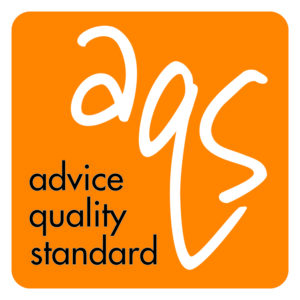In a world that increasingly depends on computers, the internet, and online communication, the barrier to accessing benefits is getting worse for those who struggle with technology.
Frustratingly, at least half of my working hours are spent helping people to access crucial benefits and housing services online, purely because so many clients have never had the opportunity to learn to use a computer. These services are supposed to be user-friendly, simple, self-explanatory. The main flaw? They are not designed to be accessible without a computer.
Today’s blog looks into the problems faced by those who are not computer literate, and the empathy and patience needed by professionals who help them, especially DWP staff.
Universal Credit: all ‘accessible’ online
Universal Credit, the new Welfare Benefits system, undergoes a huge amount of criticism. However, for most of my clients it has just one major problem: it is pretty much only accessible online.
To register for Universal Credit, the only way to get benefits for the vast majority of new claimants, you have to make an application online. This itself is a big barrier to many claimants, and is something we help people with all the time. But the process is never simple!
Barrier number 1: Poorer individuals and families may not have access to a computer at home. Library and community centre computers are a vital resource, but these services are not always open and often the computers are slowly dying from decades of use. The next best option is to get an appointment with an advice worker- that’s if there is a charity or citizens advice nearby that can help, if you can physically make it there, and if you can fit in an appointment around childcare or working hours. If you don’t know how to use a computer, that’s the only option.
Barrier number 2: For someone with learning difficulties or mental health problems, understanding that they need a username, password, memorable answers, and 16-digit identification code can just be too much. Many are struggling to cope day-to-day; remembering to eat and come to appointments is a struggle, let alone remembering a password.
Barrier number 3: Next, the claimant must have an email address- you can’t open a Universal Credit account without an email address, as they have to email you a verification code. Some clients have never emailed in their life, others have forgotten their email address long ago. Sometimes, a client will remember their email address, but when it comes to getting the verification code, they can’t remember how to log into their email. The Universal Credit website will not let you progress beyond this, meaning I’m often making email accounts as well as benefits applications for clients.
Barrier number 4: After entering what feels like endless details, the claimant has to make an appointment with their Job Centre to open the claim. To do so, you have to call Universal Credit.
Calling Universal Credit
As you can imagine, calling the DWP is never particularly efficient or enjoyable. Calling Universal Credit is often infuriating. At every stage there is an automated message that tells you it’s MUCH better to just go online and sort it out there. You then go through several automated questions, options to dial, and get through to someone after seemingly hours (but often more like 45 minutes) of listening to the tinny hold music version of Vivaldi’s Four Seasons. Poor Vivaldi.
On a more serious note, this phonecall procedure makes you feel unwanted. The repeated attempts to persuade you to go online instead, the long time on hold, the reams of automated questions: they don’t want to talk to you at all. The worst thing is, you are only going to call if you aren’t able to navigate the online system. Being told to go back online is even more frustrating in this situation: if my client could understand the website, they wouldn’t be choosing to go through the painful process of calling.
Often, the advice you get when you eventually speak to a real person is actually quite helpful. Sometimes however, the processes for sorting out a Universal Credit issue are ridiculous. For example, if a client has forgotten their password, they need their personal 16 digit code. 16 random digits obviously aren’t memorable. They will have been written down on a piece of paper by someone at the Job Centre several months ago. When a client is homeless or vulnerably housed, the chances of keeping track of that piece of paper are low. For us in Deptford, our nearest Job Centre can take an hour to get to on the bus. If a client loses their 16 digit number, they have to make an appointment with the Job Centre to get it back before they can reset their password.
For some of our more vulnerable clients, this is simply too much. Having to call, wait, make an appointment, remember the appointment in 2 weeks, travel there, get the number, then make another appointment with me to sort out their account, is just a ridiculous amount to do when everyday life is a struggle. Some clients we see only once, and then they clearly give up with the process, never to get their benefits sorted out. This means they will certainly be destitute if they do not find work. For some, this means resorting to sex work or criminal activity to get by.

When Something Goes Wrong
Universal Credit generally do not send letters, even if you request. “Everything is available to see on your online journal!”, they smugly state at every opportunity.
This can lead to huge problems for claimants. If they can’t look at their online account, they may miss a Job Centre appointment that they’ve been reminded about via email or text on a phone or computer they don’t know how to use. Once, I opened a client’s account for him, only to see in big writing: “Job Centre Appointment in one hour”! He quickly ran to catch the bus and just made it- a near miss. Missing a Job Centre appointment can mean a cut to benefits; it can mean the difference between being able to eat and having to miss meals later in the month.
If the DWP makes a mistake (this happens a lot) and a client doesn’t receive their benefits for some reason, the client may not even realise until a month later, when their money doesn’t come through. Without being able to check online, they will have totally missed that anything was wrong until it’s too late. If they can’t manage to get an appointment with a benefits adviser, they will just have to wait until someone can help them log on and make sense of it all.
So What Can We Do About It?
- We must remind each successive government (as they seem to be coming and going every 5 minutes) that their decisions are hurting vulnerable people. They must see beyond their bubble of society where everyone is technologically savvy and privileged, and see the reality of those who experience poverty. We always say this, but seriously: write to your MP. They have to reply to you- your concerns are their job. Remind them there are issues other than Brexit.
We’ve made it very easy: just use this template letter and pop it into an email. You can find your MP’s contact details here.
2. Support local charities. To find out what help is available in your area for benefits/housing advice, there’s a great database on Homeless Link, here. We may be biased, but local organisations can make a huge difference to people’s lives and help them navigate the system we are currently stuck with.
3. Spread the word! Share this article, tell your mates, tell your family. Shout it from the rooftops because this system is not fair. If you have influence, use it to amplify the voices of those who are not heard.



